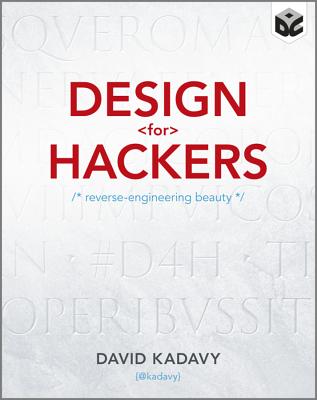Are you doing things out of ego or passion? Lately, i find myself doing things out of ego and expectation from others. Because of that, i’ve been burning out physically and mentally. Time to shift and return back to passion and pure interest
Author: admin
Design Hackers
Currently reading…

I Use 1Password and Love It
It’s an impressive application! I use it on my mobile devices and laptops, and no longer worry about creative ways to make passwords and remembering them! The security model is also neat (and I mean more secure)! I admit I get excited whenever I make a new password with this application because they’re usually something like “3Jd8(&^nc@NAZ$.<6HH!s(*xm#mQ" (NOTE: this isn't a real password I use). Now have a crack at breaking that 
I highly recommend it.
Uber’s Sexy iPhone App
It’s pretty slick. I love the slider for selecting vehicle type and the profile display. More importantly, i love getting an estimate fare to my destination!

Flirting with a Cyber-Thief
Over the summer, i was contacted by a Taiwanese celebrity over Twitter. She’s hot and gorgeous! Who would say no to a celebrity reaching out to you? Of course, looking at all her tweets set off red flags. I ignored her mostly until recently. I was curious to know this spammer’s strategy.
First, imagine a celebrity with Twitter. You might think of tweets and pictures about awesome new restaurants and food, thanking fans, retweeting news articles, interacting with fans or other celebrities, etc.
Nope, not from this person. She reached out to hundreds of other people just to be friends, asked them to follow her back, etc. ALL OF THEM. Some other red flags:
- her phone is a “Nokia.” This is a weak argument, but don’t most celebrities use an iPhone or Samsung smart phone?
- When i asked about connecting with her on Facebook, she sends me a Facebook link indeed. Instead of the “+1 Add Friend,” there was the “Subscribe” button…so that link was to a fan page…
- vacationing in Ukraine for 3 months…? Really?
Anyway, for the last few weeks, i decided to talk to this supposed Taiwanese celebrity. What’s his/her motivation? Well, i figured it out. This news article sums it up: Seduced into scams: Online lovers often duped
In short, cyber-thieves are patient enough to develop a relationship and then dupe you into sending a money deposit. I’m impressed with the amount of patience and dedication to fake a relationship.
Below is one piece of evidence of the scam. I told the celebrity i doubted her credibility, and asked for a photo of her eating a Wendy’s burger (because she talked about it a few times). She tweeted back with the pic:
Then i checked her tweet timeline. It turns out the photo came from a peer:
Notice the time stamp for these two tweets. Two minutes apart.
Secondly, the pic from the peer had a comment, so i used Google Translate to see what it meant:
Google detected that the language was in Indonesian!
To follow up, i did a Google image search on the photo:
Over 100 search results. One result showed that the photo dated back to Sept 2012. By the way, there are no Wendy’s in Ukraine.
Then i asked her if she took the pic just for me:

Eventually, i made a slip. I was doing research on this celebrity and discovered she only uses Weibo, not Twitter. I also found a Facebook comment in one fan group that questioned the credibility of the account @lycariel. I left a comment on that group about how @lycariel is a spammer. That was discovered quick by @officialyangmi (no idea who she is, probably a partner in crime), @lycarial changed her account name and her tweets are gone. She also added to her bio that she’s the official celebrity…sad that ppl are falling for this scam. Notice that the Facebook language is set to French. For an Asian celebrity? Hm, sure. Okay.
Btw, the new Twitter handle is @modellinichen (twitter page: https://twitter.com/modellinichen), so beware. Her (or “his”?) partner in crime is @lin_selvi
Facebook’s iOS app – gesture to “close” a pic
I use tablets a lot and i’m annoyed that i have to reach for the “Back” or “Close” button sometimes.
However, Facebook’s iOS app has a nice accommodation for this. When viewing photos, in addition to hitting the “Close” button, you can also use one finger to swipe down for the equivalent–both my hands are still holding the iPad, and it provides a smoother experience.
Apple’s Native Media Player
Where Did I Go From June to Now?
Where did I go and what did I do from June 2012 to now? I know I was away, but there was so much happening!
In bullet points:
- iOS development @ Twitter
- Lived in the heart of San Francisco with awesome friends
- Attended WWDC 2012 in SF, and DefCon 20 in Las Vegas
- Took a motorcycle class…
- Visited Napa Valley a few times
- Stanford Start-Up School
- Met so many awesome, inspirational, and fun people
That pretty much sums it up!
“Naturalness of Software Languages” – Thoughts
I recently read a paper called “On the naturalness of software” by Prem Devanbu, a CS professor @ UC Davis, on the idea of transplanting the ideas of Natural Language Processing from languages like English and products like Siri to software developers and writing code.
Devanbu applies the n-gram model of natural language processing to software languages and development. This is a neat idea, and his paper shows the effectiveness of applying statistical models to software languages which have precise syntax and structure, even more strict than the English language for example. Given that natural language can be applied to English and other common spoken languages, it is potentially easier for software. The best example that Devanbu uses is the for(int i=0, i<10 and how the statistical model should readily predict that ; i++) is the next piece of software. One severe limitation that Devanbu’s statistical model falls short is predicting logic. The logic of a software developer is crucial, since code can be written in different ways using different logic. I don’t think statistical models can be used to predict the logic of a software developer anytime soon. If that is the case, then we might be at the point where software can write itself.
One idea in the “Future Directions” section that stood out to me was applying the statistical models to help developers who are disabled or have RSI. I am someone who deals with RSI and agree that code is repetitive and predictable; I would find great value in using his plug-in if only it was for Xcode for the Mac. I posit that an improved auto-completion will improve productivity of individuals significantly. Who wouldn’t want that?
However, I wonder when we should not use this. Even if we can do it, should we? Even if the application of statistical models for software languages is perfect, is there a time when it isn’t needed or even avoided entirely? What are the security implications if malicious hackers used this as a tool? I am hedging my bets that this will affect school curriculums for Computer Science around the nation, for better or worse.
If statistical models can be applied to spoken language and now software languages, what about the use of computer vision combined with statistical models for body language, which is estimated to be 90% of communication. Law enforcement would love to use this idea to identify nervous behaviors among travelers at airports and other transportation hubs around the world. Body language is indeed structured like spoken languages–humans make the same gestures when nervous and uncomfortable, and the same for happiness and sadness. I see body language as the next frontier, but this could bring us one step close to the 1984 world of surveillance and limited behavior.
Hal Varian’s “Predicting the Present” with Google Trends
I just read this neat paper by Hal Varian, Chief Economist @ Google and emeritus Professor of UC Berkeley’s School of Information. Titled “Predicting the Present with Google Trends,” he goes on to explain the possibilities!
Reading his paper on predicting the present with Google Trends came as no surprise. There is significant value in accurately measuring the pulse of the present, especially for economic measures like alleviating or even bracing for an upcoming recession. His statistical methods were sound, simple, and straight-forward. I’m pretty happy that I am taking Stats 201 on Statistical Methods for Data Analysis because I was able to follow Varian’s methodology and understand the R output. His examples on the auto-industry and travel destinations were good examples, but I wonder what we can truly do with such information. In a sense, it’s almost finding out what the future will hold for us in the next 4-6 weeks. Now we are presented with the options of accepting the inevitable or fighting it to change course.
Moreover, I want to see whether social networks like Facebook, Twitter, and Google+ can contribute anything. I’ve seen talks on how the choice of words used by the media and Twitter can indicate the general mood of the population, and therefore be used in the stock markets. Just by looking at the References of the paper, many people have tried predicting various things like monitoring influenza and other diseases.
When I was interning at Twitter this summer, there was an ongoing project to measure the political mood of the US population to predict which candidate will win the US Candidacy. The method was to check the tweets using various algorithms to decide how well Mitt Romney and Barack Obama was doing, and the public’s perception of them. Furthermore, during the Presidential debates, CNN displayed live Twitter counts by the minute. On a microcosm scale, I see the entire effort of predicting the present equivalent to someone getting immediate feedback on one’s status, whether it is working out, productivity at work, and so forth! Then one can make decisions based on this new information, such as whether how sedentary that individual will be in for the rest of the day. If I knew I was going to be seated for the next few hours, I would definitely change that behavior.









